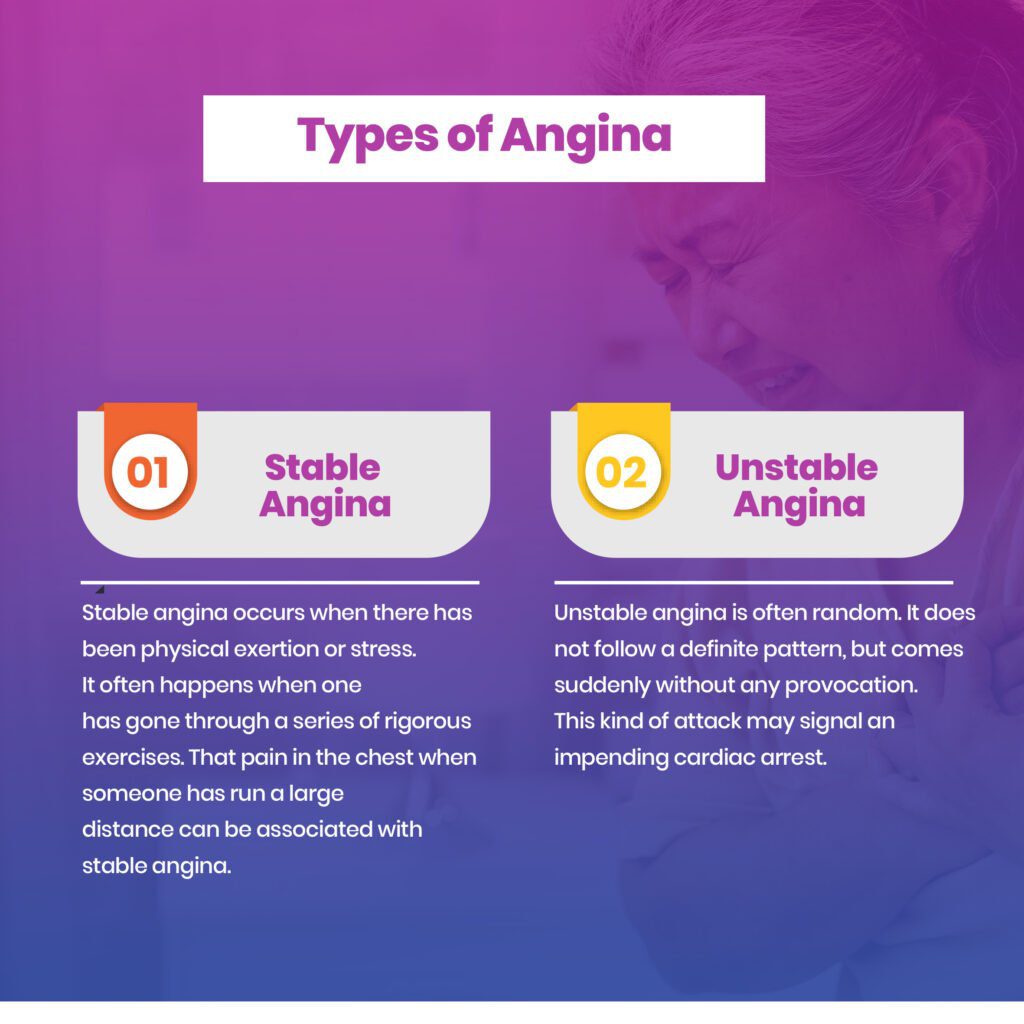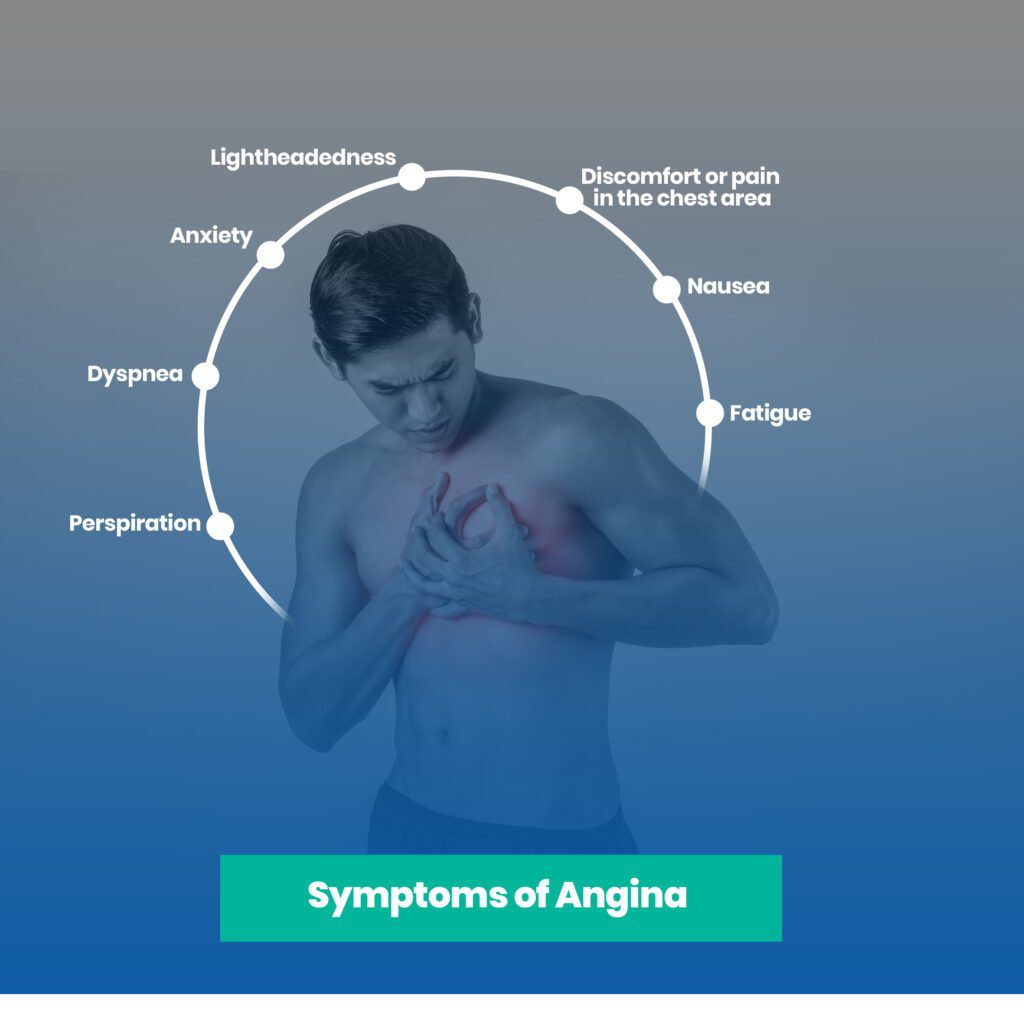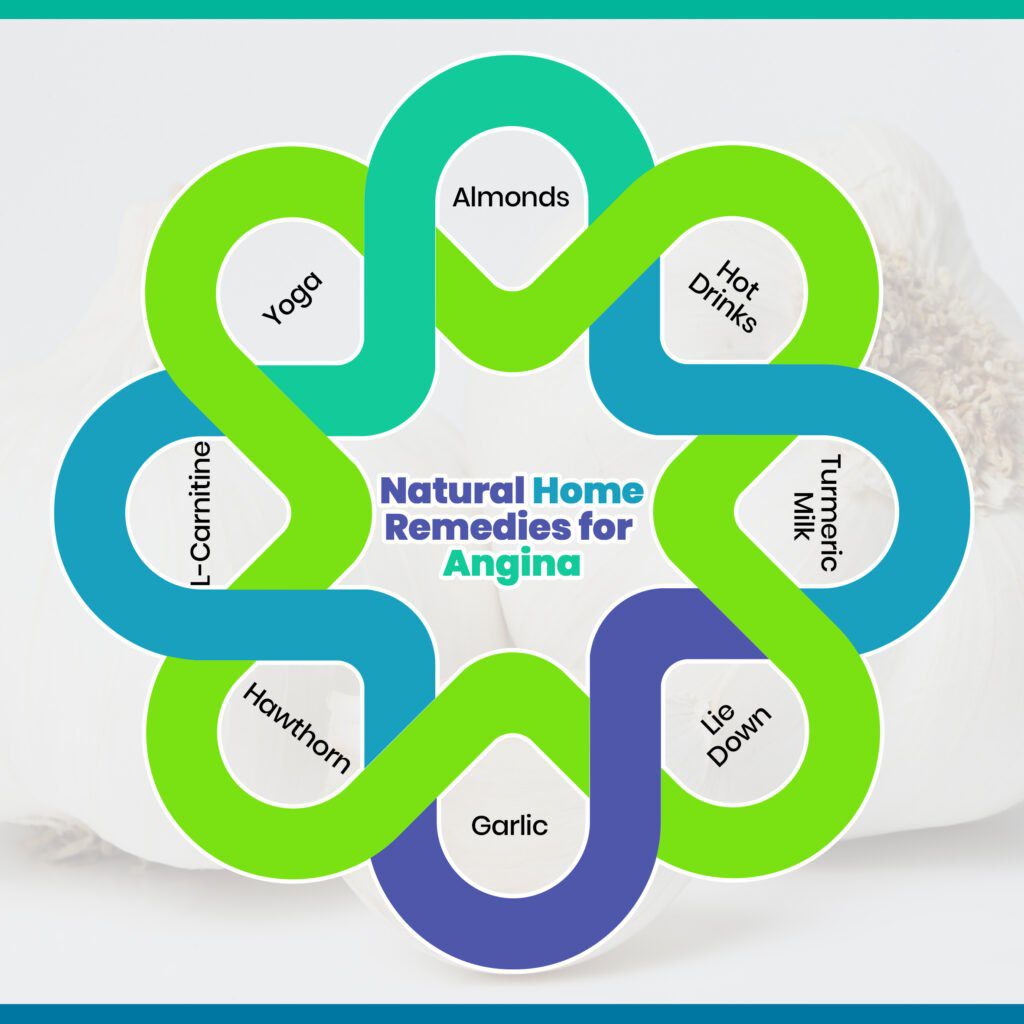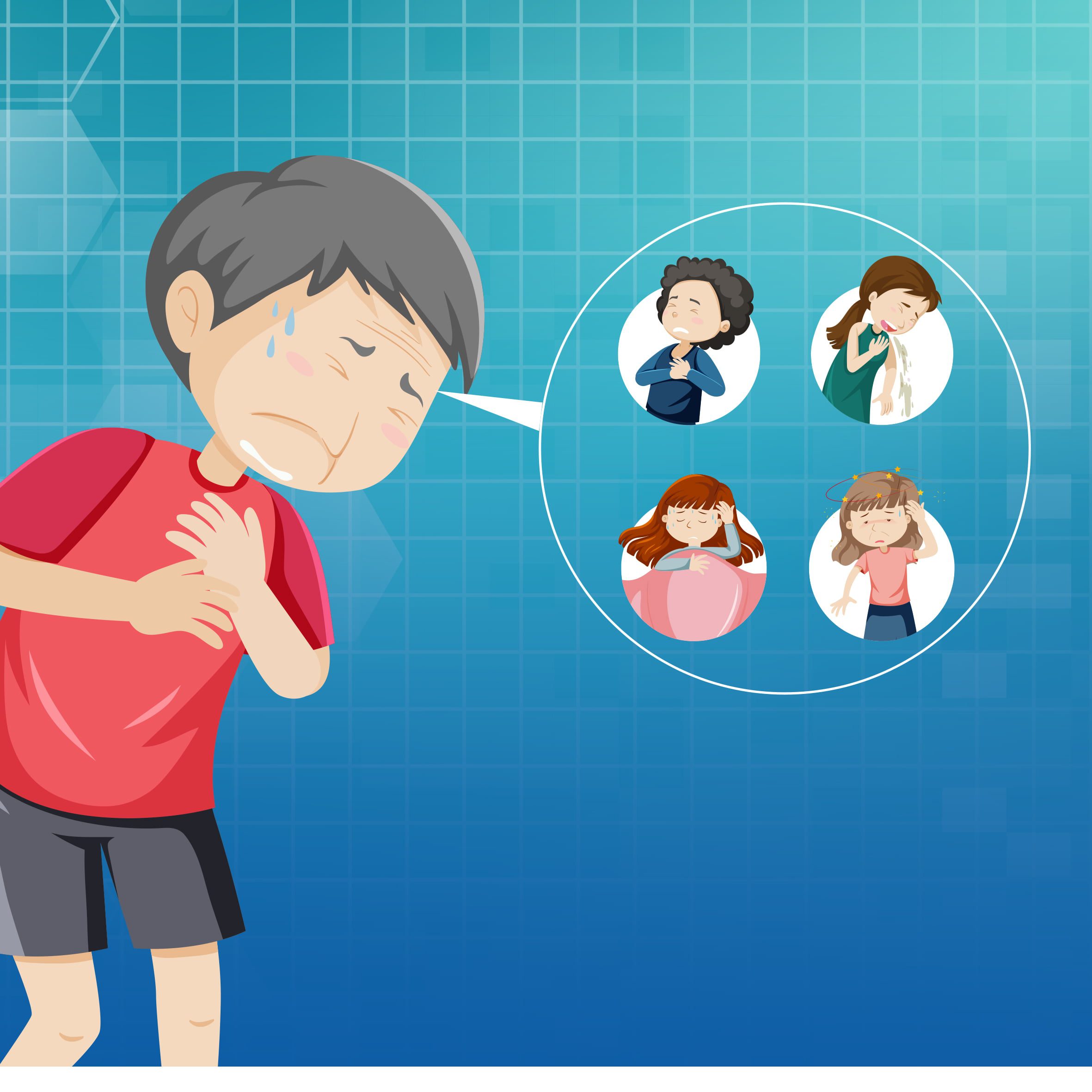


The chest pain from stable angina is often severe and hard to ignore, but angina can be generally treated with natural remedies. In a way, having such chest pain is a good thing. When it occurs, it means that your heart is telling you something – that it needs help. Naturally, the treatment of angina can come from choosing the proper kinds of food. However, in some severe cases, whether in an emergency or in the long run, there are more conventional treatment methods that you need to know.
Table of Contents
Generally, the treatment of angina depends on how severe the symptoms are or based on medical tests, which will point out the root cause of the pain. It is often advisable to go for tests before commencing any angina treatment because it is not all chest pains are automatically angina. The real causes of chest pains are often difficult to know; that is why taking proper medical tests is highly essential.
What is Angina?
Another name for angina is Ischemic chest pain (or angina pectoris). It is a type of severe pain in the chest that is caused by the reduction in the flow of blood to the heart. This reduced blood flow is a result of atherosclerosis, which is basically the buildup of fatty deposits in the arteries. Even though angina is a relatively common condition, it is easy to attribute the symptoms of other types of chest pain to it, such as the discomfort resulting from indigestion. Do not panic; angina can be treated with natural remedies.
The major symptoms of angina may include heaviness, tightness, squeezing, pressure, and pain in the chest. Many people who have experienced angina have described the pain as something like having a heavy weight resting on their chests or a vice grip squeezing their hearts. The pain is often very serious and may be fatal if proper care is not taken.
Types of Angina
There are three different types of angina:

Stable Angina:
Stable angina occurs when there has been physical exertion or stress. It often happens when one has gone through a series of rigorous exercises. That pain in the chest when someone has run a large distance can be associated with stable angina.
Characteristics of Stable Angina
- It occurs when your heart goes through too much stress, such as running for too long, exercising extensively, or climbing long stairs.
- This type of angina can be predicted; it’s often expected even before it occurs, and the pain is usually similar to the types of chest pain you’ve had in the past.
- The pain from stable angina usually lasts a short time; it takes not more than five minutes before it subsides.
- When you have enough rest or take your angina medication, stable angina often disappears.
Unstable Angina
Unstable angina is often random. It does not follow a definite pattern but comes suddenly without any provocation. This kind of attack may signal an impending cardiac arrest.
Characteristics of Unstable Angina
- Unstable angina does not only occur when you have exerted yourself too much but also occurs at rest.
- Unlike stable angina which can be predicted, unstable angina is a change in the usual pattern of angina.
- The attack is often unexpected.
- Unstable angina is a lot more severe than stable, and the pain usually lasts a lot longer. It can last as long as half an hour or even longer.
- Resting or the use of angina medication may not relieve the pain.
- It may result in a heart attack.
Variant/Prinzmetal’s Angina
This one often occurs during a resting period.
Characteristic of Variant/Prinzmetal’s Angina
- This occurs during a resting period.
- It’s usually severe.
- Angina medication may relieve it.
Symptoms of Angina
In the case of stable angina, the pain often feels like indigestion, and therefore the following symptoms may occur:

- Discomfort or pain in the chest area. It often feels like a squeezing or heavy pressure on the heart. This pain can sometimes extend to the arms, shoulder, jaw, neck, or back.
- Nausea – the strange urge to vomit.
- Fatigue – tiredness that results from working too hard, either physically or psychologically.
- Dyspnea – shortness of breath that may result from an underlying disease.
- Anxiety – a psychological disorder that results from the feeling of fear or worry.
- Perspiration – sweat can occur as a result of the extreme pain experienced from angina, or the stress that comes with it.
- Lightheadedness – This is also known as dizziness; it is the loss of balance or place. a person suffering from acute angina may experience lightheadedness.
All these symptoms should be evaluated by a medical practitioner who can perfectly determine whether you are suffering from stable angina, unstable angina, or variant angina so as to avoid the risk of being a victim of a heart attack. It is equally advisable to seek professional help before proceeding to treat angina with natural remedies.
Angina in Women
The pains women experience from angina may be different from those experienced by men. Chest pain is the common symptom of angina in both men and women, but it is not often the only symptom in women. Women may also have added symptoms such as:
- Nausea
- Shortness of breath
- Abdominal pain
- Stabbing pain rather than the pressure in the chest
- Pain in the neck, jaw, or back
Causes of Angina
When the flow of blood to the heart muscles is reduced, angina may be triggered. The blood carries oxygen which the muscles of the heart require to survive. And so when these muscles are not getting enough oxygen due to the improper flow of the blood, it gives rise to the condition known as ischemia.
CAD (coronary artery disease) is known to be the most common cause of the reduced flow of blood to the heart. The arteries of the heart can become narrowed by fatty deposits called plaques. When the arteries are too narrow, blood may not easily or fully reach the heart muscles.
At the time the heart is deprived of the oxygen in the blood, the heart may still be able to function well without triggering the symptoms of angina, provided that you are resting. However, if the demand for oxygen is increased and the blood is still not given the time to flow properly to the muscles of the heart, it can result in angina. So, it is highly advisable to give yourself enough time to rest when you exercise or exert yourself in any way. Do not wait for angina to surface before you decide to take a break.
Risk Factors Associated with Angina
The following may put you at risk of having angina:
1. The Use of Tobacco
A lot of people may not know this, but chewing, smoking, and long-term exposure to tobacco smoke from a second party can damage the interior walls of the arteries – especially the arteries to the heart; and this can allow deposits of cholesterol to gather and then block the normal flow of blood.
2. Diabetes
Diabetic patients are more susceptible to angina because the illness itself increases the risk of coronary artery disease, which can either speed up atherosclerosis or increase one’s cholesterol level; either way, it will eventually lead up to either angina or heart attack.
3. High Blood Pressure
High blood pressure gradually damages the arteries by accelerating the hardening of arteries.
4. High Blood Cholesterol or Triglyceride Levels
Cholesterol is capable of producing deposits that can narrow the arteries, especially the ones connected to the heart. In the same vein, a high level of triglyceride (which is a fat produced by your diet) may also cause as much damage to the arteries as the cholesterol.
5. Family History of Heart Diseases
If your family has a history of heart disease or heart attack, there is a likelihood that you may develop angina. Since angina works with the heart, it is only natural that families with a history of heart conditions are at risk.
6. Old Age
Men that are older than 45 years old are at greater risk of developing angina than younger people. The same applies to women older than 55 years old.
7. Lack of Exercise
People who do not exercise their bodies are at risk of gaining high blood cholesterol levels, high blood pressure, type-2 diabetes, and obesity – these four conditions are shortcuts to angina or heart disease.
8. Obesity
Being overweight can cause high blood cholesterol levels, high blood pressure, and diabetes – all these generally increase your risk of having angina. The hearts of obese people often have to work extra hard in order to supply blood to the body.
9. Stress
Anger and too much stress are capable of raising blood pressure. The surges of hormones that are produced during stress can make the arteries narrow, thereby impeding blood flow to the heart and automatically triggering angina.
Angina Prevention
You can prevent the possibility of having angina by making some changes to your lifestyle. There are things you’re doing that may trigger the risk of angina. If you can do away with those things, then you are relatively safe from the attack. The following are important to know so as to prevent the development of angina.
- If you are a smoker, you need to quit the habit. You may not be a smoker but may have friends who smoke. Inhaling this smoke is as bad as being the smoker yourself. So, try to create a safe distance between you and smokes from cigarettes.
- When you have other health conditions like high blood pressure, high cholesterol level and diabetes, always try to monitor and control them. Desist from doing things that may trigger these conditions. Of course, if they are triggered, then there is high likelihood that angina may also be triggered.
- Eat good food and watch your weight.
- Try to reduce your stress level and have proper rest.
- Try to reduce the level of your alcohol consumption if you know you drink heavily. Two drinks maximum is recommended for men per day, and one for women.
- Get annual flu shots. This will protect you from complications that may result in angina.
- Endeavor to increase your physical activity; but you have to get a doctor’s permission so that you will know the kinds of activities that will befit you. Over-exerting yourself during physical activities may put you at risk of angina.
Angina Treatments and Tests
Medications such as nitrates, beta-blockers, and ACE inhibitors can be used to treat angina. Furthermore, there are some medical procedures that can also be followed to treat angina. Such procedures include angioplasty and coronary artery bypass grafting.
When the chest pain is not as severe, it is okay to take aspirin. Since it is a pain reliever, it can help reduce heart pain. However, aspirin is not a permanent solution to angina. It may relieve the pain temporarily. When the effect of the aspirin has worn out, there is a chance the pain will return. And in a severe case, aspirin may not even work at all. It is also important to reduce your dosage of aspirin to avoid a more complicated situation. This is why you need to consult your general practitioner before making any angina decisions.
If the pain in your chest does not subside within a few minutes or you still feel the attack after taking your anti-anginal medication, then you should seek immediate medical attention. The severity of the condition will determine what solution the doctor will recommend.
There are various test procedures that your doctor can carry out; these tests include the following:
Magnetic Resonance Imaging
This is otherwise known as an MRI. This test will provide your doctor with adequate information about your chest pain. It is not enough to make a conclusion that you are suffering from angina due to the symptoms alone. The MRI will give a more detailed revelation which will allow the doctor to make the most thorough and perfect diagnosis. As soon as the problem has been properly determined, it will be easier to make the right treatments.
Electrocardiogram
Generally known as an ECG, the electrocardiogram is a test that provides critical information for both diagnosis and prognosis especially when tracing is determined during an episode of pain. The ECG tracing will help the doctor to diagnose acute and chronic coronary syndrome. It is advisable that all patients with angina should have a 12-lead ECG resting recorded.
Chest X-ray
This test will take an image of your heart and lung that may otherwise not be seen if the test is not carried out. This process is to search for other conditions that might properly explain your symptoms. It is important to take an X-ray of the chest to determine if you have an enlarged heart, which is another serious condition on its own.
Cardiac Computerized Tomography Scan
Cardiac Computerized Tomography Scan is known as a CT scan, but it is regarded as a cardiac CT scan in this case. For this test, you will be made to lie on a table inside a donut-shaped machine, then an X-ray tube in the machine will rotate around your body to collect the images of your heart and chest. This test can help determine if any of your heart arteries are narrowed, or if your heart is enlarged.
Angina Treatment with Natural Remedies
It is important to consult a physician because angina is a serious medical condition. Nonetheless, there are angina treatment with natural remedies that have shown to be very effective when properly prepared and used. Some of them can be done at home to relieve the pain that resulted from angina. But before you make use of these methods, ensure that you have been properly examined by a doctor.

The following options will help you keep angina in check, with proper help from your doctor:
Almonds
Eating a few almonds or drinking a cup of almond milk can help reduce the pain in the chest. The job of the milk is to help neutralize the acid in the esophagus and bring relief to the chest pain it resulted in. in some situations, however, almonds may not immediately stop the pain but can have a great impact on the improvement of the heart condition in the long run.
Hot Drinks
Besides the fact that hot drinks can help boost digestion, they can also assist in getting rid of gas when the chest pain is a result of gas or bloating. In this case, however, some drinks have been found to be better than others. For instance, hibiscus tea is one of the most effective ways of eliminating gas; it is also very good for lowering blood pressure and reducing cholesterol levels.
Turmeric Milk
Turmeric alone has anti-inflammatory and anti-bacterial properties. These properties can help relieve the angina symptoms in the chest. Turmeric milk is a combination of a teaspoon of turmeric spice and a cup of warm milk. This combination should always be drunk before bed to help relieve the pain. Scientific studies have shown that the compounds in turmeric can help in preventing heart disease, and the spice can also reduce the level of cholesterol.
Lie Down
The best thing to do immediately as soon as angina strikes are to lie down, but while doing that the head must be elevated above the body so as to bring relief. It’s a great first-aid technique for angina attacks. A slightly upright position is perfect when the pain is due to reflux.
Garlic
Even though there is no scientific fact to back it up, garlic has been claimed to be a great remedy for chest pain. To battle angina, mix a clove or two of minced garlic with a glass of warm milk. To get maximum results, it is better to chew the pieces of garlic rather than drink them. Garlic contains properties that can help reverse heart disease and reduce the buildup of plaque in the arteries.
Hawthorn
Hawthorn is often used by herbalists to battle high blood pressure. The herb has been known to help deal with cardiac risks in people with heart disease.
L-Carnitine
L-Carnitine is gotten from the amino acid lysine. It is naturally produced in the body and often sold as a dietary supplement. L-Carnitine is capable of decreasing the swelling that narrows the arteries.
Yoga
In 1993, a group of 93 people with angina or the risk factors of coronary artery diseases were studied. The researchers discovered that a 14-week yoga program helped these people improve the health of their hearts.
Conclusion
Angina is a very dangerous condition and may result in death if one is not careful. By following the instructions, techniques, and natural remedies already given above, you are reducing your risk of becoming a victim.
Post Disclaimer
The information contained in this post "Angina Treatment with Natural Remedies" is for educational purposes only. Always consult your primary care doctor before using the remedies that are provided. The information is provided by The Hidden Cures and while we do timely, in-depth research on the information that we provide to you, everything stated may not be up to date or accurate from the time it was written.



